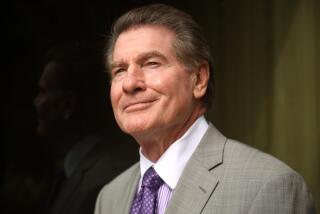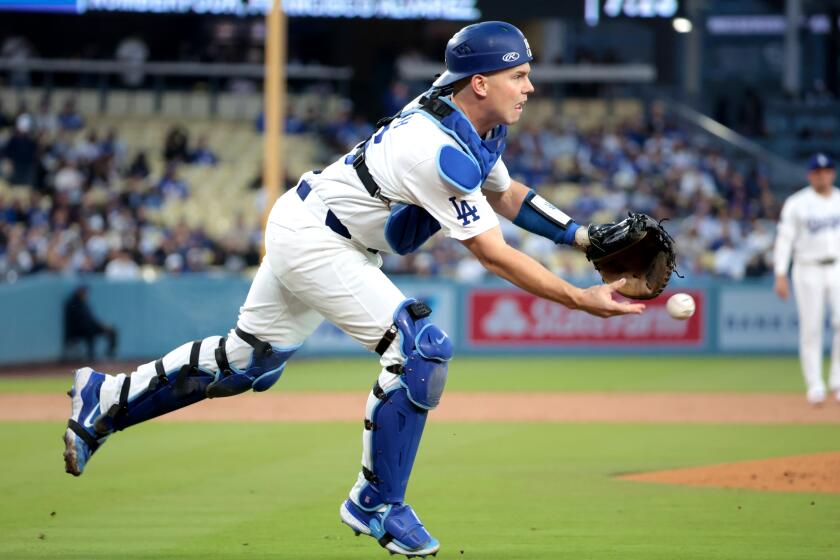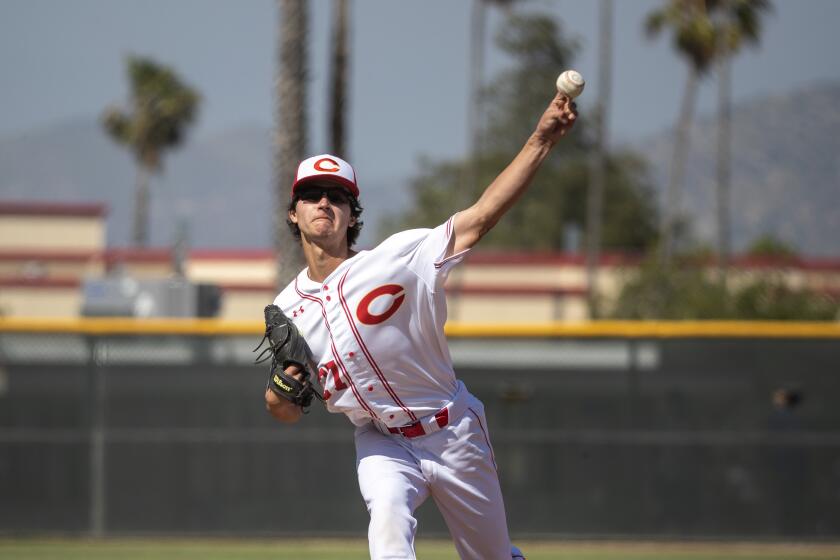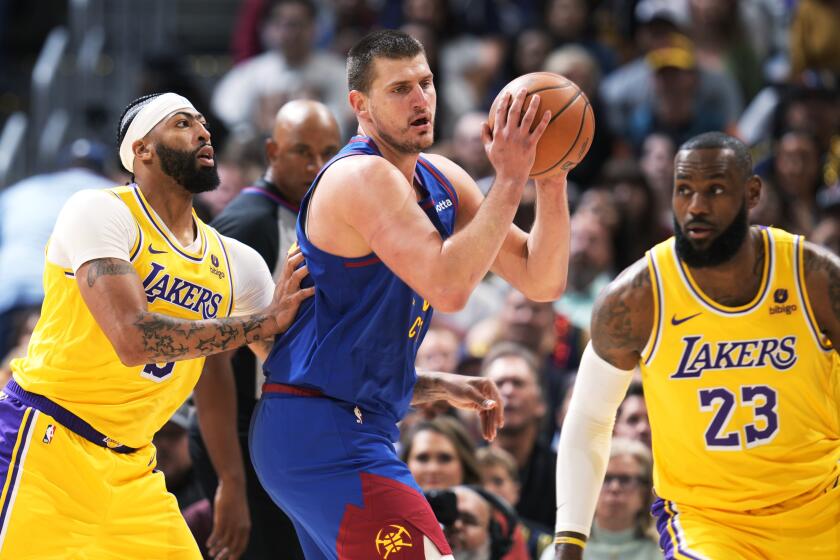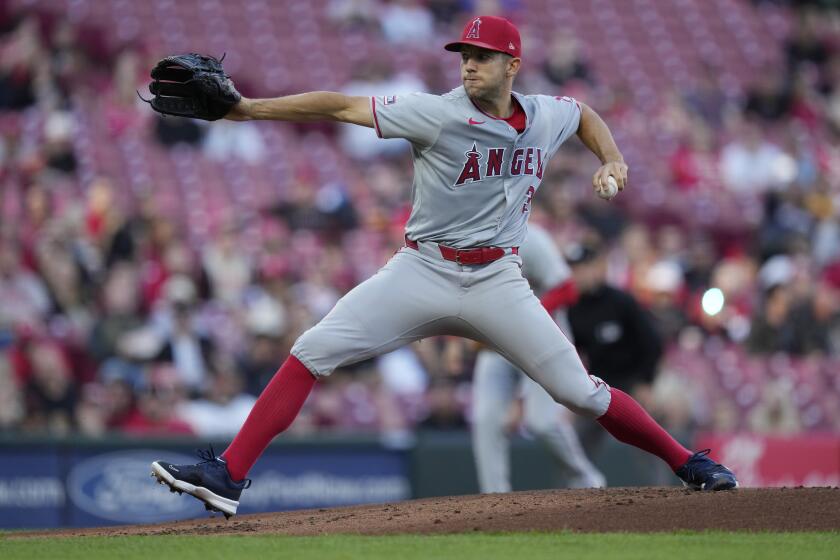Baseball in California a story of conquer, but not divide
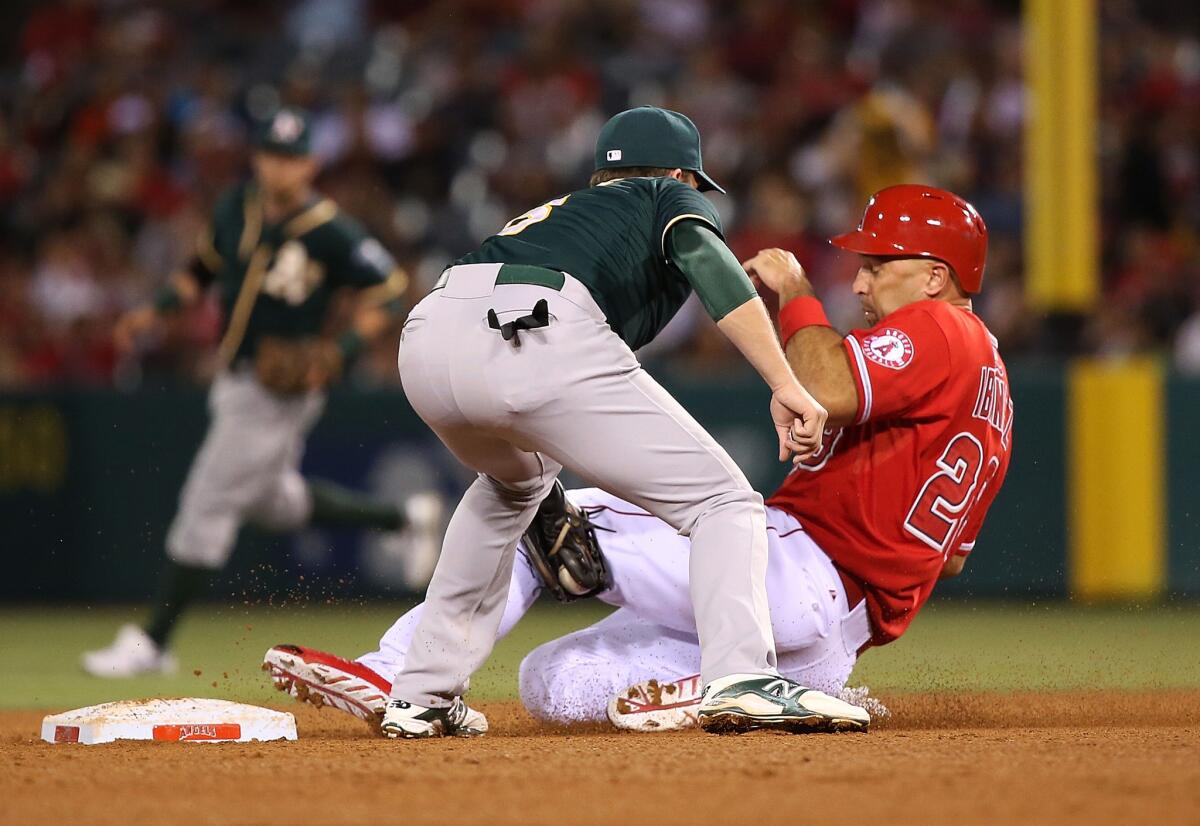
It’s been a dry, but terrific, year for major league baseball in California.
In case you have been out illegally watering down your driveway, the four teams with highest win totals through Monday do business in our state.
Oakland’s Athletics lead the majors with 61 wins, followed by the Angels (59), Dodgers (56) and San Francisco (55, tied with Detroit and Milwaukee).
Only our “fifth” baseball Beatle, San Diego, is failing to hold water with its un-statesmanlike 43-55 record. The Padres did help keep the pennant chase in state last week by agreeing to trade closer Huston Street to the Angels.
Why don’t we just call it a season now and start the Golden State Series?
Maybe this dominance is one reason why Silicon Valley billionaire Tom Draper is trying to get a measure on the ballot to divide California into six states.
Why should one star on the U.S. flag hog all the baseball glory? Even as California dominates our national pastime, ESPN is no doubt planning its next extended-coverage broadcast of the Yankees\Red Sox, two storied franchises with a combined record of 97-100.
Eventually, though, all content providers outside of DirecTV will get wind of what’s going on out west.
The only xenophobic concern with our ongoing hit-and-run series, “The Californians,” is baseball’s kooky wild-card formula.
As it stands, three teams from the AL West would make the postseason. The As would claim the division, with the Angels and Seattle Mariners having to play a one-game playoff for the wild-card spot.
That’s just not fair.
This might be a perfect time for the MLB to beat college football to its own new playoff model by using a 13-person selection committee to pick baseball’s top four teams.
Using the new CFP plan, the committee could seed No. 1 Oakland against the No. 4 Dodgers in one semifinal series with the No. 2 Angels pitted against the third-seeded San Francisco Giants.
This all-state extravaganza would save travel costs while giving left-out contenders Detroit, Milwaukee and Washington plenty of fodder to demand an eight-team playoff.
The California semifinal winners would then play for the World Series. Because of the drought, the champion players would only be allowed to douse each other with water three times a week.
More to Read
Get our high school sports newsletter
Prep Rally is devoted to the SoCal high school sports experience, bringing you scores, stories and a behind-the-scenes look at what makes prep sports so popular.
You may occasionally receive promotional content from the Los Angeles Times.


